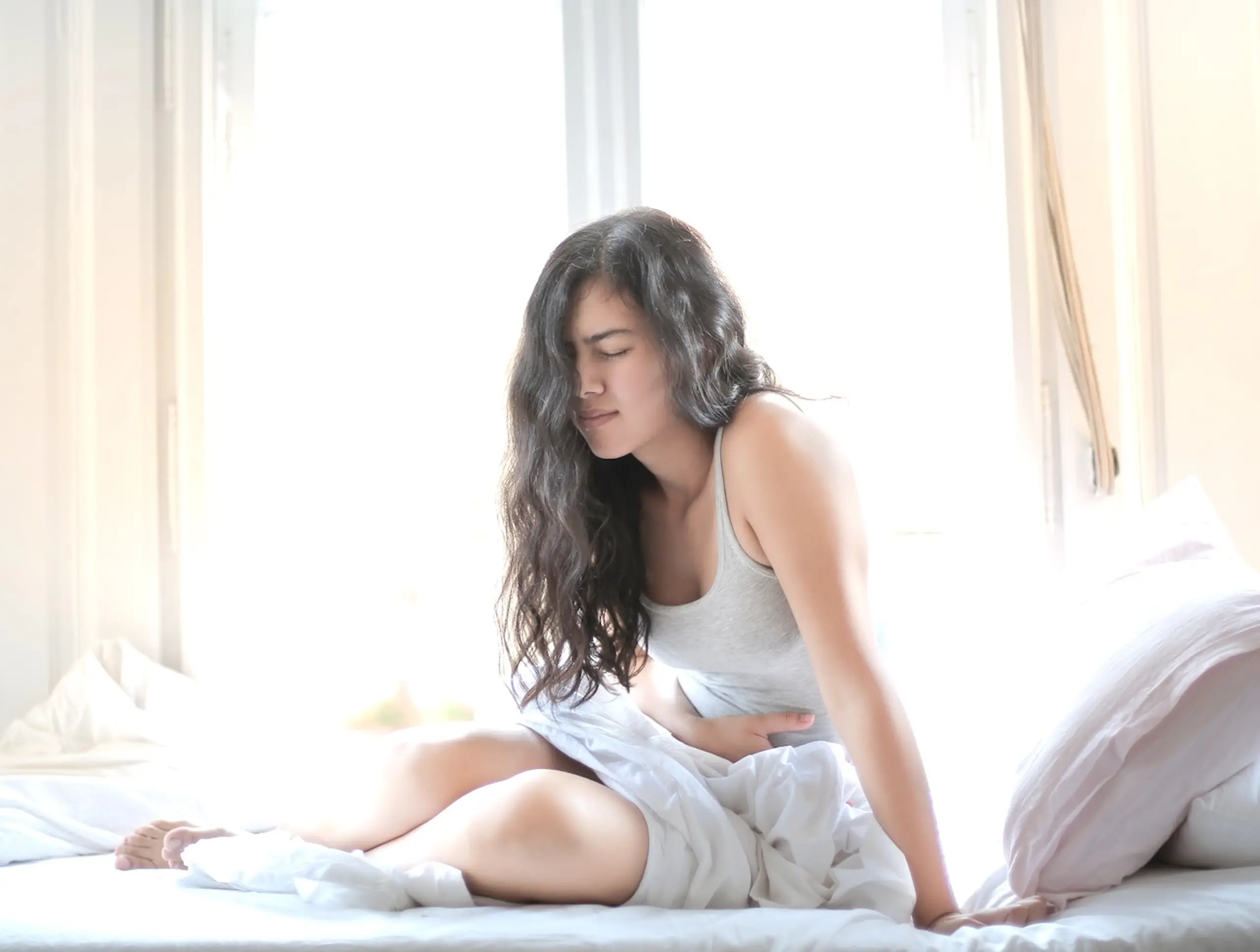5 minutes read
Am I going through early menopause? 7 signs and symptoms you shouldn't ignore
Fournine

If you've ever bolted out of bed after a particularly bad case of the night sweats, and wondered, "am I going through early menopause", you're not alone.
As a woman, you know that going through the menopause is an inevitable part of life. No matter how much you want to avoid it, just like wrinkles and death, it will happen at some point.
For the majority, menopause begins in your late 40's or early 50's. In fact, the average age for a woman to go through menopause is 51-years-old. But, for some women, it can come much sooner.
 Credit: Pexels
Credit: Pexels
Am I going through early menopause?
Officially referred to as Premature Ovary Failure (POF), most doctors consider it early menopause if a woman’s periods stop before the age of 45.
READ MORE: 11 best health apps for women that are complete game changers
It affects around 1 in 100 women before the age of 40, and 5 in 100 before the age of 45. Causing infertility, an increased risk of osteoporosis, and even linked to cardiovascular conditions, it can be difficult to deal with, both physically and emotionally.
There is no one cause of early menopause. It could happen as a result of medical treatment. Or it could simply be that the ovaries stop working due to autoimmune conditions, chromosome abnormalities or enzyme deficiencies
Although it can run in families, it can also strike at random without explanation. So how can you spot the signs and symptoms of early menopause? And how can you differentiate them from other conditions?
1. Hot flushes
When you find yourself sitting at work on a chilly February afternoon, just tapping on your keyboard, and suddenly it feels like you’ve just walked three miles in the Cuban sunshine, then it may be a cause for concern.
READ MORE: What are the small white bumps around my eyes? Here's what causes milia
Of course, it could just be that you’ve indulged in a little too much sauce the night before, or you’re on medication, but when combined with other symptoms, it can be a sign of early menopause. Drink some water, fan yourself down, and book in with a doc.
2. Night sweats
If you’ve ever had a fever, or just a really bad dream, you’ll know how scary it feels to suddenly wake up drenched in sweat in the middle of the night.
Night sweats are closely related to the hot flushes you experience during the day and are basically guided by the same thing: the drop in oestrogen throwing your body’s internal thermostat out of whack. Except, while you’re asleep you can’t actively cool yourself down as you would in the day, hence the damp sheets.
3. Fluctuating or missed periods
A common sign of early menopause is fluctuating or missed periods. Sure, there will be times when you’re a few days late or early, as your cycle can be affected by everything from stress to dietary changes.
READ MORE: What is hyperthyroidism? The condition affects 10 times more women than men
However, keep an eye on when you come on. If you’re frequently missing periods, then it’s time to get it checked out. It's generally advised that women see their doctor if they've missed three in a row, whatever they think the cause may be.
4. Vaginal dryness
Symptoms include loss of lubrication and pain during sex. There can also be pain when you pee, as well as a change in the consistency of discharge.
According to Women’s Health Concern, up to 17% of women experience this issue long before menopause, so it’s not a given that early menopause could be the cause.
The best thing to do? Talk to your doctor, and don't be embarrassed - they’ve heard it all before.
5. Mood changes
Sometimes we all just need a bit of time to ourselves. But if your perfectly lovely partner leaving his dirty socks on the floor suddenly fills you with more rage than before, it’s probably worth looking for a cause.
With PMS, you’d normally be expecting a bit of irritability for a week or so, but with the menopause it can go on for much longer.
6. Difficulty sleeping
The decline of estrogen that accompanies menopause can cause disrupted sleep on account of hot flushes and night sweats, as well as feelings of anxiety and depressed mood.
7. Decreased libido
Decreased libido is also a common symptom of early menopause, and this is due to decreased hormone levels.
Lower levels of estrogen can lead to vaginal dryness and tightness, which can cause pain during intercourse. Additionally, other symptoms of early menopause can cause some women to become less interested in sex overall.
The bottom line
All in all, these symptoms are really the same as those commonly experienced by older women during the menopause.
However, when combined, and when you're in your 20's or 30's, they’re worth getting checked out. A healthcare professional will be able to help you get the answers you need.